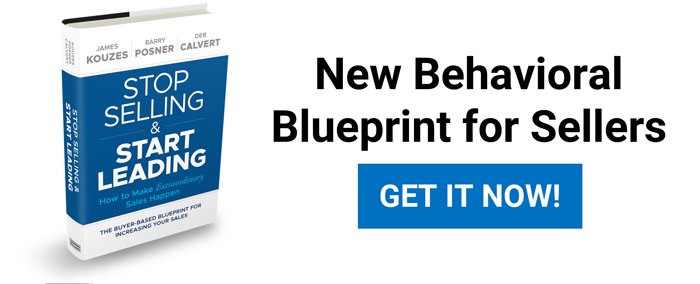1-Call Close or 2-Call Close?
Disclaimer: This post applies to those who sell goods or services that can be closed in a single sales call. Sellers who are responsible for major and complex sales that require research and cross-departmental partnering to develop proposals are exempt from this advice!
I used to advocate for the 2-call close. The first call was for building rapport and conducting a thorough needs assessment. The second call was for the presentation, negotiation and close of the sale. In between the calls, the research, presentation and proposal would be prepared and finessed and reviewed and rehearsed.
These days, I find myself recommending a 1-call close more often. Why? For these 5 reasons:
1. It's difficult to get on a busy buyers' calendar. Lag time between the two calls delays the close and stalls the solution for the buyer.
2. Sellers procrastinate on preparing proposals and presentations. The longer it takes, the more the seller forgets from the initial call. The quality of the second call (and the chances of making a sale) diminish rapidly over time.
3. A buyer's interest wanes over time. After an engaging needs assessment, the buyer's interest is piqued. Building from that heightened interest makes more sense than artificially inserting a prolonged pause.
4. Sellers often have everything they need to move into a presentation or proposal. There's less need to go back to the office (or even out to the car) to get product samples, brochures or other sales collateral. It's all in your laptop or tablet, ready to help you advance this sale right now.
5. Buyers have more options than ever. Once you've piqued their interest, you've heightened the chance that will take action. If you don't close the sale, your competitor might... thanks to the preliminary work you've done.
To seize the moment and move from needs assessment to proposal and close all in one sales call requires three characteristics.
First, a seller must have self-control to make this work. This is not about pouncing on the first hint of a potential need. Restraint is needed to proceed through the needs assessment to identify and confirm the most urgent and pressing need.
Second, a seller will need the integrity to discern what the buyer truly needs (vs. what the seller wants to sell in that moment). In the heat of the moment, sellers often default to whatever is top of mind for them instead of evaluating the genuine fit for the buyer.
Finally, to be effective in a one-call close, a seller must be highly efficient. Buyers get distracted when appointments run long or if they are overwhelmed by too much to sort through. This means needs assessment questions are purposeful and exacting to yield actionable information quickly. It means calculations on product specifications and rates are produced quickly and accurately. It also means a seller is well-prepared to invalidate objections and to nimbly negotiate.
Of course, there will be times when a 1-call close is not the right choice. Sellers who are unable to develop these traits should probably stick to a 2-call close. Sales that are more complex and those that require input/approvals from others need a second call before a close is attempted. In those situations, rather than closing the sale close on the next appointment. Get a concrete time booked and impress upon your buyer how important and valuable that call will be.
Use the 1-call close whenever you can. It's going to save you a lot of time and will help you make more sales.


